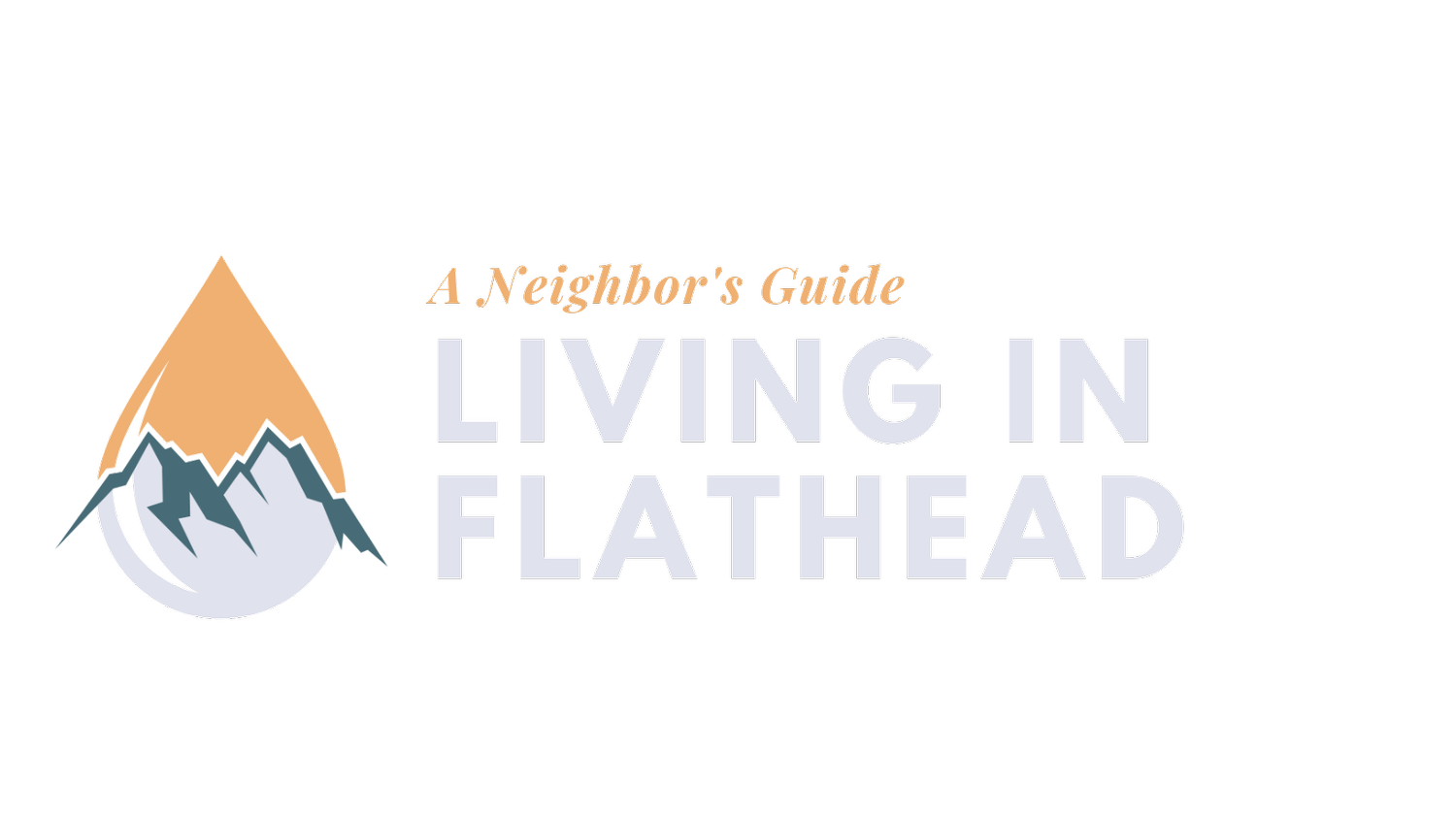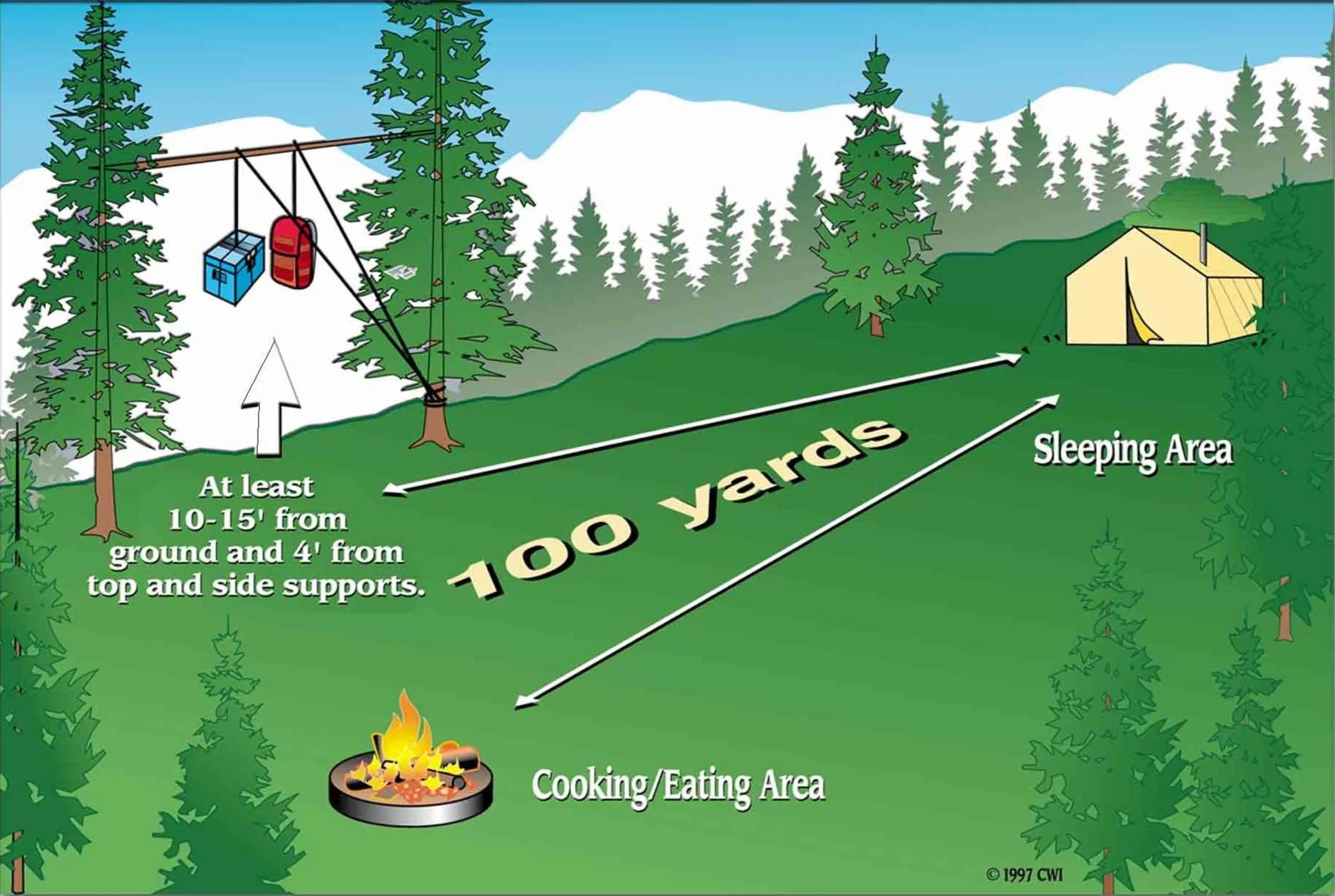
This is bear country.
The majority of human-bear encounters do not involve conflict. But when there is conflict, it usually involves bears protecting their young or a food source.
Intentionally or unintentionally feeding bears is illegal, and creates a safety issue for you and your animals.
Always Be Bear Aware
Seeing a bear is a memorable experience, but the survival of these magnificent creatures greatly depends on your actions. It’s important in bear country to be bear aware at home, at work, and while recreating. Depending on where you are and what you’re doing, different strategies will help you stay safe, and bears wild.
-
Learn about bear activity before you go. Check out information at trail heads, visitors centers, and Facebook before you hike or hunt in an area.
Carry EPA-approved bear spray and KNOW HOW TO USE IT. Bear spray is an effective, nonlethal bear deterrent. It is important you know how to use it before you have to use it.
Make noise. Loud noise is a simple, effective way to deter a bear… rock and roll ballads, showtunes, or classic old country tear jerkers. -
Carry bear spray in bear habitat.
Stay calm, most bear encounters do not result in an attack. Never run away. Running may trigger a bear to chase and you cannot outrun a bear. If you see a bear, stop, and watch it so you can determine its behavior and have your bear spray ready.
If the bear makes physical contact and you can’t deploy bear spray, drop to the ground face down, in a cannonball position, and play dead. Cover your neck and head with your hands.
Recommendations vary by the time of year, bear behavior, and more.
-
Bear spray is a highly effective, non-lethal deterrent, as it temporarily incapacitates a bear when sprayed properly. Always recreate with each person carrying a full can of EPA-certified bear spray and make sure it is not expired.
Keep the safety lock on unless you think you may need to discharge the spray. While outdoors, practice taking the lock off quickly so it’s second nature.
If you need to discharge your bear spray, remove the safety and spray before the bear reaches you so that it runs into the cloud of spray, about 2-3 seconds or until the bear is affected. Point slightly downwards, as a charging bear will be low to the ground.
Report an encounter:
If you encounter a bear displaying aggressive or defensive behavior, or if a bear gains access to a food attractant, please report it by calling Montana Fish, Wildlife & Parks at (406) 752-5501; USDA Wildlife Services for bear-livestock conflicts at (406) 657-6464; or the Confederated Tribes at (406) 275-2774.
In an emergency, dial 9-1-1.
ESSENTIAL TIPS TO REDUCE BEAR CONFLICT AND SECURE ATTRACTANTS WHERE YOU LIVE, WORK, AND RECREATE:
-
Bears travel throughout Montana using their noses to find natural and non-natural food resource. While bears look for a diversity of food to eat, garbage is one of the highest points of conflict between people and bears.
Non-natural food resource: Garbage, bird seed, pet food, barbeque grills, compost, fruit trees, chickens and other small livestock (chickens to cows) and their feed, crops, beehives, dead and buried animals, and salt licks. These can attract bears to your property.
Natural food sources: Wild berries, grasses, insects, wildlife carcasses, pine nuts, fish, and much more. Be aware of your environment where bears might be feeding.
-
Keep bear attractants including dog good and chicken feed in bear-resistant containers or inside a secured building, including firm doors and windows.
Install an electric fence around attractants, including your chicken coop, calving grounds, carcass piles, beehives, and compost. These are proven to be effective with bears.
Feed birds when bears are hibernating. This is usually from November through March, but dates will vary depending on the weather on any given year.
Build electric fencing around fruit trees, or pick up fruit before it ripens, and let it ripen in a secure place. If you can’t pick or use all your fruit, check out Flathead Fruit Gleaning or Mission Valley Fruit Gleaning Facebook pages for a local fruit-picking group.
Properly clean barbecue grills or burn off all greasy residue before you are finished.
Properly dispose of carcasses by contacting Flathead County Solid Waste at 406-758-5910.
Use bear-resistant garbage containers. Call your private trash pickup service to inquire about bear-resistant trash cans. In the Flathead Reservation, call your private trash pickup service, or, if you self-haul, call the Tribes CSKT NRD-Division of Fish, Wildlife office at 406-883-2888 (Monday-Thursday).
-
Proper food storage is critical for your safety. When you are not at your camp or picnic site, store ALL food, canned beverages, garbage, stock and pet food:
In locked car, hard-sided camper, or horse trailer, or IGBC-certified bear resistant containers. Coolers and plastic storage boxes are NOT bear resistant.
Suspend 10 feet up and 4 feet out from a vertical support like a tree.
Hunters retrieving meat from a kill site should have a clear view of their surroundings at all times.
Storage of food, garbage and other attractants is restricted during camping and other activities on Forest Service lands, including Flathead, Kootenai, and Lolo National Forests, to help prevent attracting grizzly bears. Review the Food Storage Order.
Resources
Recreating Safely and Storing Your Food in Bear Country, USDA Forest Service Flathead National Forest.
Call Flathead County Solid Waste at 406-758-5910 to see what animal carcass can be disposed of there.
In the Flathead Reservation, call your private trash pickup service, or, if you self-haul, call the Tribes CSKT NRD-Division of Fish, Wildlife office at 406-883-2888 (Monday-Thursday).
Report bear-livestock conflicts by calling USDA Wildlife Services at 406-657-6464 or visit USDA Animal and Plant Health Inspection Service.
Report bear-conflict by calling Montana Fish, Wildlife & Parks at 406-752-5501.
For educational materials, toolkits, or advice to reduce conflict contact People and Carnivores at 406-587-3389 or info@peopleandcarnivores.org.
Vacation Rental Bear Safety Toolkit.
Learn about bear resistant products.


